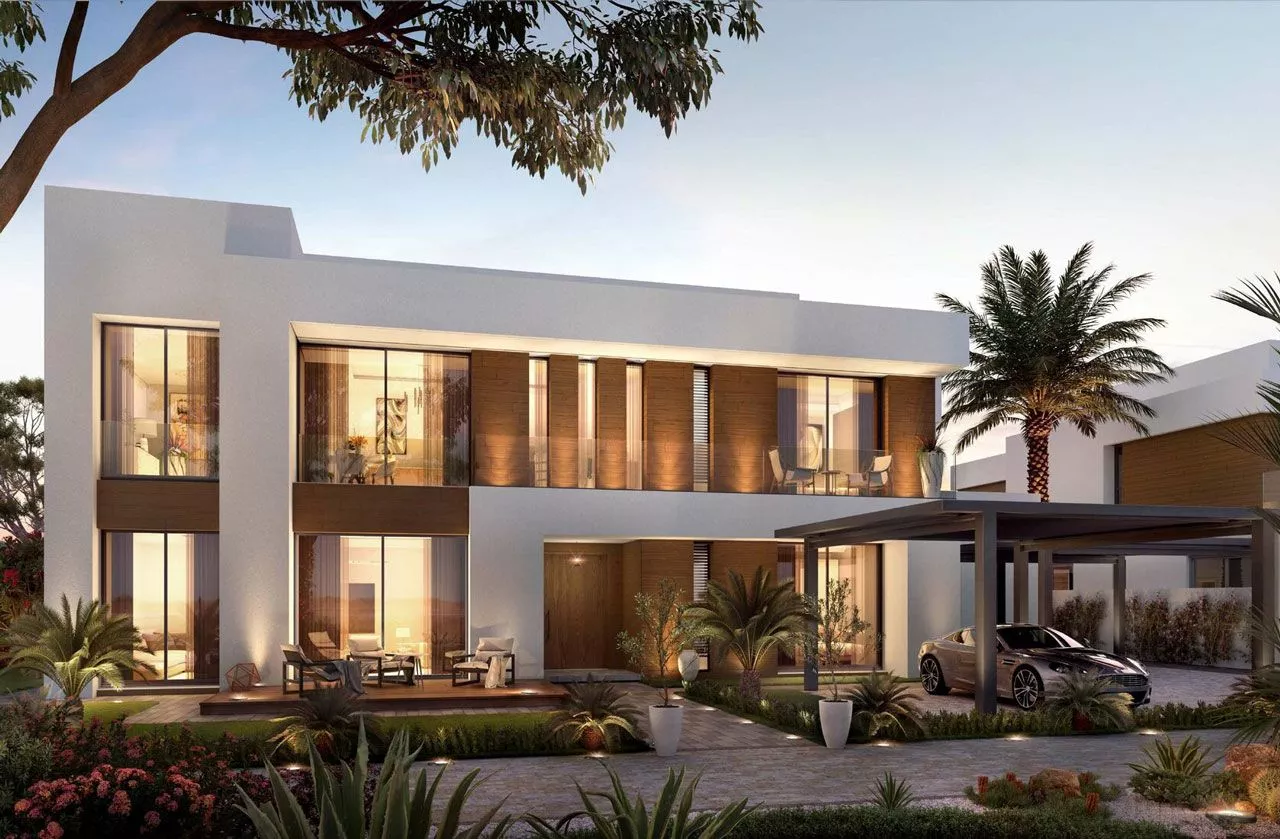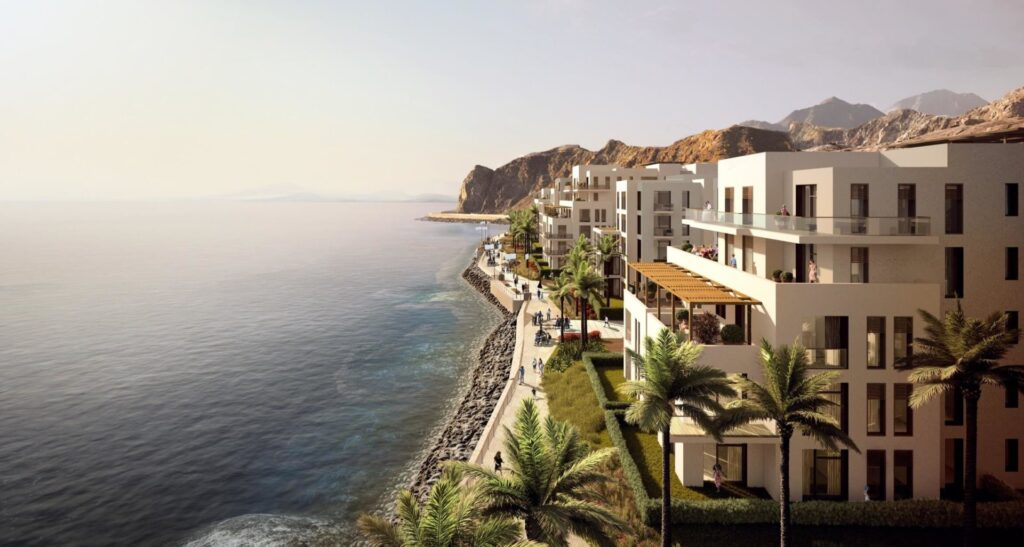Now Reading: UAE Property Market: 5 Tax-Free Zones Ideal for Retirement Properties
-
01
UAE Property Market: 5 Tax-Free Zones Ideal for Retirement Properties
UAE Property Market: 5 Tax-Free Zones Ideal for Retirement Properties

Table of Contents
The UAE has long been a magnet for expatriates and investors, renowned for its luxurious lifestyle, political stability, and attractive tax policies. For those considering retirement, the appeal is even stronger, especially with the introduction of the retirement visa program. While the UAE generally does not impose personal income tax, capital gains tax, or inheritance tax, the “tax-free” nature is often associated with its numerous Free Zones. These specially designated areas offer unique incentives that can make them ideal locations for retirement properties.
It’s important to understand that when we talk about “tax-free” in the context of UAE Free Zones for retirement properties, we are primarily referring to the absence of personal income tax, capital gains tax on personal property sales, and inheritance tax. The 5% Value Added Tax (VAT) still applies to goods and services, and property transfer fees are standard across the Emirates.
The UAE’s retirement visa, aimed at individuals aged 55 and above, offers a five-year renewable residency if they meet certain financial criteria, such as owning a property worth at least AED 1 million (approximately USD 272,000), having savings of AED 1 million, or a monthly income of AED 20,000. This visa, combined with the Free Zone benefits, creates a compelling proposition for retirees.
Here are 5 tax-friendly zones in the UAE that are ideal for retirement properties, offering a blend of lifestyle, amenities, and favorable financial conditions:
1. Dubai Freehold Areas (e.g., Dubai Marina, Downtown Dubai, Palm Jumeirah)
While not officially “Free Zones” in the traditional sense of company registration, Dubai’s many freehold areas operate under a special legal framework that allows foreign nationals 100% ownership of their properties. These areas are, in essence, “free zones for property ownership” and are highly popular for retirement due to their vibrant communities, world-class infrastructure, and diverse property options.
2. Abu Dhabi Freehold Areas (e.g., Yas Island, Saadiyat Island, Al Reem Island)
- Key Benefits:
- No Personal Income Tax: Retirement income, pensions, and any other personal earnings are not taxed.
- No Capital Gains Tax: If you sell your retirement property, you generally won’t pay capital gains tax on the profit.
- No Inheritance Tax: The UAE does not levy inheritance or estate tax, allowing for straightforward wealth transfer.
- Luxury Lifestyle & Amenities: Areas like Dubai Marina, Downtown Dubai, and Palm Jumeirah offer a high standard of living with excellent healthcare facilities, shopping malls, fine dining, and recreational activities.
- Connectivity: Dubai boasts a well-connected international airport, making travel easy for visiting family or exploring the world.
- Considerations: While not a “tax” in the traditional sense, be aware of Dubai Municipality Fees on rental income (typically 5% of annual rent) if you decide to rent out your property. Property transfer fees (4% in Dubai) also apply when purchasing.
Similar to Dubai, Abu Dhabi offers designated freehold areas that are highly attractive for retirement. These areas provide a more relaxed pace of life compared to Dubai, while still offering top-tier amenities and cultural attractions. The focus here is often on upscale living with a strong emphasis on arts, culture, and nature.
3. Ras Al Khaimah (RAK) Free Zones and Freehold Areas
- Key Benefits:
- Tax Exemptions: Enjoy the same benefits of no personal income, capital gains, or inheritance taxes.
- High Quality of Life: Abu Dhabi is known for its green spaces, pristine beaches, world-class museums (like the Louvre Abu Dhabi), and family-friendly environment.
- Integrated Communities: Developments on Yas Island, Saadiyat Island, and Al Reem Island are meticulously planned, offering a comprehensive living experience with schools, healthcare, and retail within easy reach.
- Government Support: Abu Dhabi has also been proactive in attracting retirees, aligning with the broader UAE retirement visa initiatives.
- Considerations: Like Dubai, property transfer fees apply (typically 2% of the property value in Abu Dhabi).
Ras Al Khaimah offers a more affordable and serene alternative for retirees while still providing excellent infrastructure and the “tax-free” advantages. RAK has several free zones, such as Ras Al Khaimah Economic Zone (RAKEZ), which facilitate business setup, but also offer residential options in freehold areas within the emirate.
- Key Benefits:
- Cost-Effectiveness: Generally lower cost of living and property prices compared to Dubai and Abu Dhabi.
- Relaxed Environment: Offers a peaceful setting with natural beauty, including mountains, deserts, and beaches, ideal for those seeking a tranquil retirement.
- Tax Benefits: Adheres to the UAE’s no personal income, capital gains, or inheritance tax policy.
- Growing Infrastructure: RAK is continuously investing in tourism and infrastructure, enhancing its appeal as a retirement destination.
- Retirement Visa Friendly: RAK’s straightforward processes align well with the retirement visa requirements.
- Considerations: While less bustling than Dubai, RAK still provides modern conveniences. Property transfer fees are typically around 2% of the property value.
4. Sharjah Free Zones (e.g., Sharjah Media City – Shams, Hamriyah Free Zone)
Sharjah, known as the cultural capital of the UAE, offers unique retirement prospects, especially for those who appreciate a more traditional and culturally rich environment. While its free zones primarily cater to businesses, the overall tax environment for individuals living in Sharjah’s freehold areas aligns with the UAE’s no personal income tax policy.
- Key Benefits:
- Cultural Hub: Rich in museums, art galleries, and educational institutions, providing a stimulating environment.
- Affordability: Generally more affordable living and property costs than Dubai and Abu Dhabi.
- Family-Friendly: A strong emphasis on family values and community.
- Tax Advantages: Personal income, capital gains, and inheritance are not taxed.
- Proximity to Dubai: Offers a quieter lifestyle while still being within a reasonable commuting distance to Dubai’s amenities.
- Considerations: Sharjah has stricter regulations regarding alcohol and dress codes compared to Dubai, which retirees should be aware of. Property transfer fees in Sharjah are typically 2% of the property value.
5. Fujairah Free Zones (e.g., Fujairah Free Zone, Fujairah Creative City)
Fujairah, the only emirate on the east coast, offers a distinct retirement experience with stunning mountain backdrops and access to the Indian Ocean. Its free zones are primarily for business, but the emirate’s overall tax regime for individuals makes it an attractive, albeit niche, retirement destination for those seeking tranquility and outdoor activities.
- Key Benefits:
- Scenic Beauty: Known for its dramatic Hajar Mountains, beautiful beaches, and excellent diving and snorkeling spots.
- Peaceful Lifestyle: Offers a much quieter and more relaxed pace of life compared to the bustling cities.
- Tax Incentives: No personal income, capital gains, or inheritance taxes apply to individuals.
- Growing Potential: While smaller, Fujairah is developing its tourism and residential infrastructure.
- Considerations: Fewer large-scale amenities and entertainment options than the more developed emirates. Property transfer fees are typically 2% of the property value.
Important Note on “Free Zones” for Property:
It is crucial to distinguish between “Free Zones” established for company registration (which offer 100% foreign ownership, full profit repatriation, and corporate tax exemptions for businesses operating within them) and “freehold areas” which allow foreign nationals to own residential property outright. For retirement properties, the key attraction is the freehold ownership coupled with the broader UAE tax environment (no personal income, capital gains, or inheritance tax). While some free zones might have limited residential offerings, the primary areas for retirement properties are typically the designated freehold zones in each emirate.
Before making any decisions, it’s always advisable to consult with a qualified real estate agent and a tax advisor in the UAE to understand the specific requirements for the retirement visa and the latest regulations on property ownership and taxation. UAE Property
read more: Fujairah Real Estate: 6 Property Tax Insights for Mixed-Use Developers






















